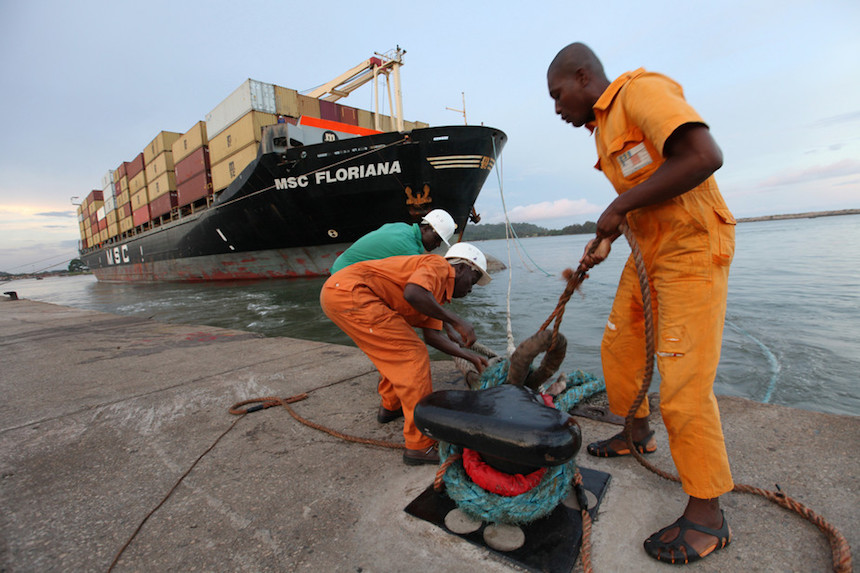
Piracy off the African coastline has been a headline grabbing phenomenon for more than a decade. For a few years though, Somali pirates appeared to have a quiet spell. Then, recently they had their first successful attack against a merchant vessel since 2012.
Other attacks followed, including one in April that was foiled by Chinese and Indian navies.
On the other side of the continent, attacks against ships in the Gulf of Guinea remain a concern for shipping companies, particularly off the coast of Nigeria.
The State of Maritime Piracy report reiterates that the Nigerian coastline is a dangerous area for seafarers and has been for years.
However, coastal states affected by piracy often have other priorities. Take Somalia for example. The country is battling many issues including the effects of a long drought and frequent Al-Shabaab attacks.
The situation is similar in other countries. The Africa Centre for Strategic Studies points out that national security and economic policies rarely emphasise maritime security. This is due to a lack of awareness, political will and resources.
For years maritime security has been neglected throughout Africa. Recently however, there has been renewed focus on maritime issues. This was highlighted by the African Union’s maritime strategy and the Lomé maritime summit.
These developments show that maritime matters have become more important. But this is still not enough. To develop their blue economy coastal states need to start addressing maritime security issues beyond just piracy.
It should also include factors such as illegal, unreported and unregulated fishing. Unfortunately politicians and academics have traditionally framed maritime security in Africa as a purely counter-piracy affair. The debate needs to be broadened significantly to include an appreciation of the economic potential of the seas.
How to secure the oceans
Sea based economic activities (known as the blue economy) include; offshore oil and gas production, maritime trade, fishing activities and coastal tourism.
While these activities happen at sea, solutions to improve maritime security must be developed by national governments first. It is not enough to relegate security to navies and coastguards. Governments must first determine where patrols are needed.
In theory, they can do this using comprehensive surveillance techniques to gather intelligence on all activities within their exclusive economic zones. However, many governments in the developing world lack the sufficient technical capabilities to do so.
However, if Africa’s coastal states are really committed to developing their blue economies they will also need to employ a wide-reaching maritime strategy over and beyond basic security. The island nation of Seychelles has been particularly active in this area.
Maritime strategies help to identify the resources needed to realise the economic potential at sea. They are also the basis for security cooperation between neighbouring countries. This is because maritime insecurity is often a transnational problem.
National security agencies, the international community and NGOs should collaborate to develop a maritime strategy. At the national level, missing capacities can even be provided by the private sector. To manage this multi-agency approach national governments must ensure that their own priorities are front and centre.
Limiting maritime security to counter-piracy activities will not lead to sustainable solutions. Governments must adopt a more holistic approach to securing the oceans.
![]() It does not make sense to focus on pirate attacks while ignoring other criminal activities at sea.
It does not make sense to focus on pirate attacks while ignoring other criminal activities at sea.
Dirk Siebels, PhD Candidate (Maritime Security), University of Greenwich
This article was originally published on The Conversation. Read the original article.

